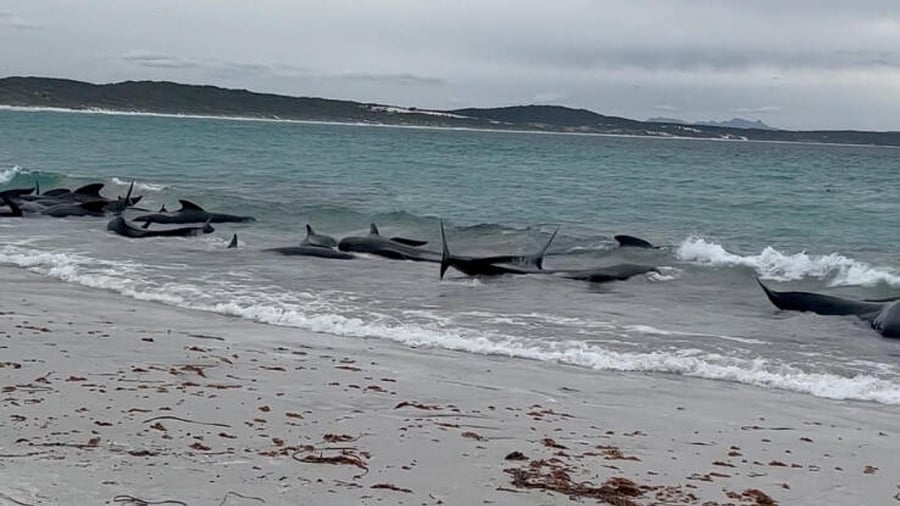
India sees a 10-fold increase in whale stranding along the southwest coast
Photo for representational purpose.
Credit: Reuters Photo
Thiruvananthapuram: A study by the ICAR-Central Marine Fishers Research Institute (CMFRI), Kochi has found a ten-fold increase in whale stranding along the southwest coast over the last one decade.
Kerala, Karnataka and Goa were found to be the key hotspots. High vessel traffic, fishing activity, environmental factors and shallow coastal shelves were identified as contributing factors.
A statement from CMFRI said that the study found that while the increase in whale stranding was only 0.3 per cent during 2003 to 2013, from 2014 to 2023 the increase went up to three per cent.
In 2023 alone 9 whale strandings were reported, which was the highest in recent years. Those were mostly between August and November.
Apart from various reasons affecting whales, there is also an increase in citizen reporting and increased social media attention on whale beaching.
Sea surface temperature and rising ocean temperature were among the reasons for increased whale stranding, whereas strong converging currents used to drag the weak or dead animals to shore.
A team led by R Ratheesh Kumar, principal investigator of the national research project on 'Marine mammal stock assessments in India', carried out the study.
While there were reports that there is an increase in whale beaching along the Kerala coast following the recent two ship mishaps, CMFRI scientists said that studies on the impact of the ship mishaps on the whales as well as other marine resources were only progressing. So far there is no conclusive report on it.
The study also found that Bryde’s whales were the most commonly stranded species, while blue whales were occasionally found. Genetic complexity of Bryde’s whales along the Indian coast could be also observed. Two distinct forms of the species are present in Indian waters.
CMFRI scientists stressed the need for initiating region specific mitigation measures like real-time alerts, marine megafauna conservation networks,training for fishers and officials and improving citizen science platforms for data collection.